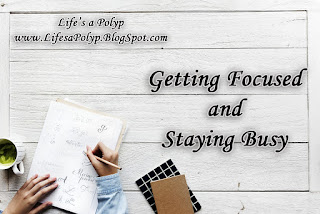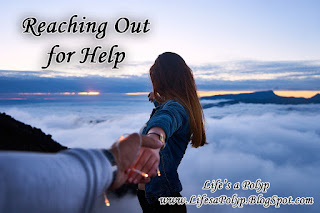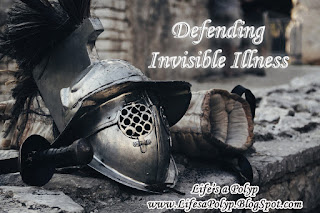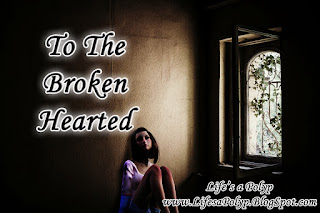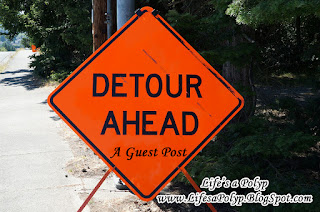This is a guest post by Amy Oestreicher
Sometimes, the best way to find yourself is to just get lost.
When you don't know where you’re going, the world can be a scary place. That’s what drives our to-do lists, our calendars, our goals and our life plans. I know this all too well, as someone who had a minute-to-minute agenda, planning and plotting every major milestone in my life from birth to bachelor’s degree to
Broadway debut.
But sometimes, life takes a detour. Something that a 2016 yearly planner can’t always account for.
What’s a detour?
Google has an answer for that:
noun
1. a long or roundabout route taken to avoid something or to visit somewhere along the way.
"he had made a detour to a cafe"
verb
1. take a long or roundabout route.
"he detoured around the walls"
A detour, according to its French origins, literally means a change of direction.
I, however, have my own definition of a detour:
A detour is a curve in the road of life, a bump in a path, a big sign in the middle of your trip that says, “sorry, you have to go THAT way.” Nobody expects a detour to happen in life. It’s what happens when we think we have things planned and all figured out…and then we’re thrown a curveball.
A detour is many things – unexpected, a nuisance, difficult, hard to grapple with, frustrating, – but it can be beautiful. Sometimes, we can’t appreciate how beautiful our detour was until we’ve made multiple twists, turns and deviations in our “set-out” path. Sometimes, we can’t realize the beauty of our detour until we spend a bit of time traveling it – we need to give that detour enough time to form a story of its own.
After all, every good story comes from a detour. What would be so funny about a forum if “A Funny Thing [never] Happened on the Way to the Forum?
(It’s a musical, FYI.)
By sharing our stories, we make sense of our “detours.” We reframe our “derailments” as the intricate pathways that make up who we are today. When we tell others about our detours, we become travel partners on these journeys with no straight path. When we know we’re not traveling alone, that road becomes an adventure. Who can say they’ve never had an unexpected glitch in their life-plans? That’s a detour.
What detours force us to do is explore new opportunities. When we can’t go in the direction we anticipated, we’ve got to switch gears and adapt. We have to resource inner strengths that we never knew we were capable of accessing. When we achieve the “unthinkable”, we discover who we really are.
Even still plagued with wounds, scars, and some medical issues that haven’t been resolved, I’ve found beauty in the detours. If I took away all of the setbacks, hurdles, frustrations and detours, I wouldn’t be who I am today. Telling my story made me realize the true beauty of my detour.
That’s what makes me a Detourist.
What’s a Detourist?
A detourist travels along detours – simple enough. But in addition, a detourist embraces those unexpected routes as opportunities for growth, change and self-fulfillment. I’m living proof that a detour can lead to unexpected blessings.
As a detourist, I look for the upside of obstacles. I welcome the unexpected change in my “thought-out” life, and see what opportunities may arise.
Because of my ten-year surgical marathon, I’ve written a one-woman musical about my life,
Gutless & Grateful, I discovered the world of mixed media art, I've met amazing people, discovered incredible new experiences, and have been through the worst to make room for the best.
Starting a Movement
How do we make the best of a detour? Sometimes, we just need to hear that other Detourists have navigated their paths triumphantly. What I’ve experienced is, the more inspiring stories we hear about Detourists turning an obstacle into an opportunity, the more empowered we are to transform our own lives and have confidence that when life DOES surprise us, we’re capable of getting through anything.
#LoveMyDetour
Now, I want to inspire people to flourish because of, rather than in spite of challenges.#LoveMyDetour aims to encourage growth and healing by sharing our stories; to transform communities by inspiring people to open their minds and reframe their view of “detours” into a new direction for life. That’s why I’m spreading #LoveMyDetour around the world.
With that in mind, I’d like to leave you with six ways to love your detour:
1. Savor the element of surprise. Straight paths are boring.
2. Find one beautiful flower along the path and name it after the detour that led you to it.
3. Keep traveling to see where it leads.
4. Find a new friend along the path.
5. Use it as a chance to locate your internal compass.
6. Put the pedal to the metal and take the best road trip of your life!
So how do you get un-lost?
You know how you realize you're normal once you realize NO ONE is normal?
Well you get un-lost when you realize were all detouring together.
If we keep going, we're not lost. We're Detourists.
Thriving Through Detours
#LoveMyDetour is a campaign inspiring people to flourish because of, rather than in spite of challenges.
#LoveMyDetour aims to encourage growth and healing by sharing our stories; to transform communities by inspiring people to open their minds and reframe their view of “detours” into a new direction for life.
“Detours” have created the most scenic surprises in my world. Now, I envision a world where “detours” in life are everyday blessings. The road is open with open possibility, with voluptuous curves, with wandering wonder.
Safe travels, Detourists!
Learn more about creating compassion through our detours at amyoes.com.
 We feel better, physically and emotionally, when we keep active. Whether it's exercise, projects, or socializing our bodies and mind need activity. Remaining stagnant is harmful to our well-being. It is common for depression to take root when we are listless in our activity. Without action, we become bored and isolated, we focus our thoughts on our frustrations and our sorrows. We allow ourselves to become fixated on what bothers us, what's wrong rather than what we can do and enjoy.
We feel better, physically and emotionally, when we keep active. Whether it's exercise, projects, or socializing our bodies and mind need activity. Remaining stagnant is harmful to our well-being. It is common for depression to take root when we are listless in our activity. Without action, we become bored and isolated, we focus our thoughts on our frustrations and our sorrows. We allow ourselves to become fixated on what bothers us, what's wrong rather than what we can do and enjoy. 
